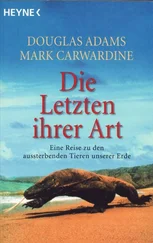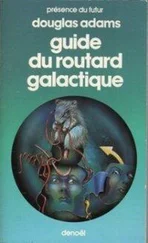Douglas Adams - The Salmon of Doubt
Здесь есть возможность читать онлайн «Douglas Adams - The Salmon of Doubt» весь текст электронной книги совершенно бесплатно (целиком полную версию без сокращений). В некоторых случаях можно слушать аудио, скачать через торрент в формате fb2 и присутствует краткое содержание. Жанр: Фантастика и фэнтези, на английском языке. Описание произведения, (предисловие) а так же отзывы посетителей доступны на портале библиотеки ЛибКат.
- Название:The Salmon of Doubt
- Автор:
- Жанр:
- Год:неизвестен
- ISBN:нет данных
- Рейтинг книги:4 / 5. Голосов: 1
-
Избранное:Добавить в избранное
- Отзывы:
-
Ваша оценка:
- 80
- 1
- 2
- 3
- 4
- 5
The Salmon of Doubt: краткое содержание, описание и аннотация
Предлагаем к чтению аннотацию, описание, краткое содержание или предисловие (зависит от того, что написал сам автор книги «The Salmon of Doubt»). Если вы не нашли необходимую информацию о книге — напишите в комментариях, мы постараемся отыскать её.
The Salmon of Doubt — читать онлайн бесплатно полную книгу (весь текст) целиком
Ниже представлен текст книги, разбитый по страницам. Система сохранения места последней прочитанной страницы, позволяет с удобством читать онлайн бесплатно книгу «The Salmon of Doubt», без необходимости каждый раз заново искать на чём Вы остановились. Поставьте закладку, и сможете в любой момент перейти на страницу, на которой закончили чтение.
Интервал:
Закладка:
He is relaxed, gregarious, and a solidly built two meters tall. In fact, he has more the air of those English public-school boys who became rock stars in the 1970s; he once did play guitar on stage at Earls Court with his mates Pink Floyd. In a nicely flash touch, instead of producing a passport-size photo of his daughter out of his wallet, he opens up his impressively powerful laptop, where, after a bit of fiddling about, Polly Adams, aged five, appears in a pop video spoof featuring a cameo appearance by another mate, John Cleese.
So this is what his life turned into; money, A-list friends, and nice toys. Looking at the bare facts of his CV—boarding school, Cambridge Footlights, and the BBC—it seems at first sight no surprise. But his has not been an entirely straightforward journey along well-worn establishment tracks. Douglas Noel Adams was born in Cambridge in 1952. One of his many stock gags is that he was DNA in Cambridge nine months before Crick and Watson made their discovery. His mother, Janet, was a nurse at Addenbrooke’s Hospital, and his father, Christopher, had been a teacher who went on to become a postgraduate theology student, a probation officer, and finally a management consultant, which was “a very, very peculiar move,” claims Adams. “Anyone who knew my father will tell you that management was not something he knew very much about.” The family were “fairly hard up” and left Cambridge six months after Douglas was born to live in various homes on the fringes of East London. When Adams was five, his parents divorced. “It’s amazing the degree to which children treat their own lives as normal,” he says. “But of course it was difficult. My parents divorced when it wasn’t remotely as common as it is now, and to be honest I have scant memory of anything before I was five. I don’t think it was a great time, one way or another.”
The school boasts a remarkably diverse list of postwar alumni: clothing designer Hardy Amies; the disgraced historian David Irving; TV presenter Noel Edmonds; Home Secretary Jack Straw; and London Times editor Peter Stothard were all there before Adams, while comedians Griff Rhys Jones and Keith Allen were a few years behind him. There are four alumni—two Labour and two Conservative—in the current House of Commons. In a scene that now seems rather incongruous in the light of Keith Allen’s hard-living image, it was Adams who helped the seven-year-old Allen with his piano lessons.
When Adams was thirteen, his mother remarried and moved to Dorset, and Adams changed from being a “day boy” at the school to a boarder. It appears to have been an entirely beneficial experience.
“Whenever I left school at four in the afternoon, I always used to look at what the boarders were doing rather wistfully,” he says. “They seemed to be having a good time, and in fact I thoroughly enjoyed boarding. There is a piece of me that likes to fondly imagine my maverick and rebellious nature. But more accurately I like to have a nice and cosy institution that I can rub up against a little bit. There is nothing better than a few constraints you can comfortably kick against.” Adams ascribes the quality of his education to being taught by some “very good, committed, obsessed and charismatic people.” At a recent party in London he confronted Jack Straw on New Labour’s apparent antipathy to direct-grant schools, on the basis that it had done neither of them much harm. Frank Halford was a master at the school and remembers Adams as “very tall even then, and popular. He wrote an end-of-term play when Doctor Who had just started on television. He called it ‘Doctor Which.’ ” Many years later, Adams did write scripts for Doctor Who. He describes Halford as an inspirational teacher who is still a support. “He once gave me ten out of ten for a story, which was the only time he did throughout his long school career.
And even now, when I have a dark night of the soul as a writer and think that I can’t do this anymore, the thing that I reach for is not the fact that I have had best-sellers or huge advances. It is the fact that Frank Halford once gave me ten out of ten, and at some fundamental level I must be able to do it.”
It seems that from the beginning Adams had a facility for turning his writing into cash. He sold some short, “almost haiku-length,” stories to the Eagle comic and received ten shillings. “You could practically buy a yacht for ten shillings then,” he laughs. But his real interest was music. He learned to play the guitar by copying note for note the intricate finger-picking patterns on an early Paul Simon album. He now has a huge collection of left-handed electric guitars, but admits that he’s “really a folkie at heart. Even with Pink Floyd on stage, I played a very simple guitar figure from ‘Brain Damage’ which was in a finger-picking style.”
The other key influence was Monty Python. Having listened to mainstream British radio comedy of the fifties he describes it as an “epiphanous” moment when he discovered that being funny could be a way in which intelligent people expressed themselves—“and be very, very silly at the same time.”
The logical next step was to go to Cambridge University, “because I wanted to join Footlights,” he says.
“I wanted to be a writer-performer like the Pythons. In fact I wanted to be John Cleese and it took me some time to realise that the job was in fact taken.”
At university he quickly abandoned performing—“I just wasn’t reliable”—and began to write self-confessed Pythonesque sketches. He recalls one about a railway worker who was reprimanded for leaving all the switches open on the southern region to prove a point about existentialism; and another about the difficulties in staging the Crawley Paranoid Society annual general meeting. The arts administrator Mary Allen, formerly of the Arts Council and the Royal Opera, was a contemporary at Cambridge and has remained a friend ever since. She performed his material and remembers him as
“always noticed even amongst a very talented group of people. Douglas’s material was very quirky and individualistic. You had to suit it, and it had to suit you. Even in short sketches he created a weird world.”
Adams says, “I did have something of a guilt thing about reading English. I thought I should have done something useful and challenging. But while I was whingeing, I also relished the chance not to do very much.” Even his essays were full of jokes. “If I had known then what I know now, I would have done biology or zoology. At the time I had no idea that was an interesting subject, but now I think it is the most interesting subject in the world.”
Other contemporaries included the lawyer and TV presenter Clive Anderson. The culture secretary Chris Smith was president of the union. Adams used to do warm-up routines for debates, but not because of any political interest: “I was just looking for anywhere I could do gags. It is very strange seeing these people dotted around the public landscape now. My contemporaries are starting to win lifetime achievement awards, which obviously makes one feel nervous.” After university, Adams got the chance to work with one of his heroes. Python member Graham Chapman had been impressed by some Footlights sketches and had made contact. When Adams went to see him, he was asked, much to his delight, to help out with a script Chapman had to finish that afternoon. “We ended up working together for about a year. Mostly on a prospective TV series which never made it beyond the pilot.” Chapman at this time was “sucking down a couple of bottles of gin every day, which obviously gets in the way a bit.”
But Adams believes he was enormously talented. “He was naturally part of a team and needed other people’s discipline to enable his brilliance to work. His strength was flinging something into the mix that would turn it all upside down.” After he split up with Chapman, Adams’s career stalled badly. He continued to write sketches but was not making anything like a living. “It turned out I wasn’t terribly good at writing sketches. I could never write to order, and couldn’t really do topical stuff. But occasionally I’d come out with something terrific from left field.”
Читать дальшеИнтервал:
Закладка:
Похожие книги на «The Salmon of Doubt»
Представляем Вашему вниманию похожие книги на «The Salmon of Doubt» списком для выбора. Мы отобрали схожую по названию и смыслу литературу в надежде предоставить читателям больше вариантов отыскать новые, интересные, ещё непрочитанные произведения.
Обсуждение, отзывы о книге «The Salmon of Doubt» и просто собственные мнения читателей. Оставьте ваши комментарии, напишите, что Вы думаете о произведении, его смысле или главных героях. Укажите что конкретно понравилось, а что нет, и почему Вы так считаете.







